
The
Dallas Morning News
weighed in on the Amazon vs. Texas sales tax debate with an editorial
contending that it "defies logic that a book bought online can elude
sales tax while the same book bought in a bookstore can’t. A sales
transaction is a sales transaction, and if one is taxed, why shouldn't
the other be taxed as well?... The Texas Legislature and Congress need
to do something to level that playing field."
State Comptroller Susan Combs was praised for not backing down despite criticism from Governor Rick Perry (
Shelf Awareness, February 14, 2011). The
Morning News
editorial argued that Combs "is right to try to collect sales tax from
Amazon and protect brick-and-mortar stores in Texas from unfair
competition. State Rep. Elliott Naishtat, D-Austin, recently proposed
legislation, HB 1317, to make it harder for companies to skirt the
'physical presence' standard. This newspaper hopes the measure prods the
Legislature to seriously review the sales tax dilemma. While it is not
the total answer, it's a reasonable starting place for the discussion.
As online commerce increases, Texas mustn't come out on the short end of
receiving its fair share."
---
Sadly, Borders Group was not the only bookseller filing for Chapter 11 reorganization this month. On February 11, Page One, Albuquerque, N.Mex., filed for Chapter 11, listing debts of $1.37 million and assets of $800,000, according to reports in the
Albuquerque Journal and
New Mexico Business Weekly.
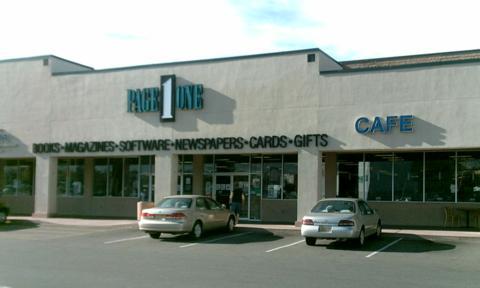
In an e-mail to customers, owner Steven Stout said that "in this age of Internet-related doo-dads and the convenience of doorstep shipping, we realize that we need to change our (business) model in order to survive. Filing Chapter 11 reorganization has given us the leeway to do just that." He hopes to keep the store open but plans either to move or downsize its current 24,500 square feet of space.
In the filing, Stout, who founded Page One in 1981, listed himself as the largest secured creditor, owed $453,393. Bank of the West is the second largest secured creditor, owed $250,000. Some 52 unsecured creditors, including publishers, are owed $474,866. The filing stated that "after any exempt property is excluded, and administrative expenses paid, there will be no funds available for distribution to unsecured creditors."
---
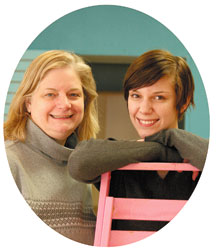 Decorah Newspapers
Decorah Newspapers profiles Kate Rattenborg, the owner of
Dragonfly Books, which opens this week in Decorah, Iowa.
Rattenborg has worked as a librarian at the University of Iowa and the University of Minnesota. Six years ago, she returned with her children to Decorah, her hometown, after her husband died suddenly. Dragonfly Books is named in honor of her late book-loving husband, she said. Dragonflies symbolize renewal and change, light and rebirth, and the power of life in general. "Life is short, and you don't know what is going to happen," she told the paper. "Instead of postponing a dream, just embrace it--and go with it."
Dragonfly Books is located at 112 W. Water St., Decorah, Iowa 52101; 563-382-4275;
dragonflybooks.com.
---
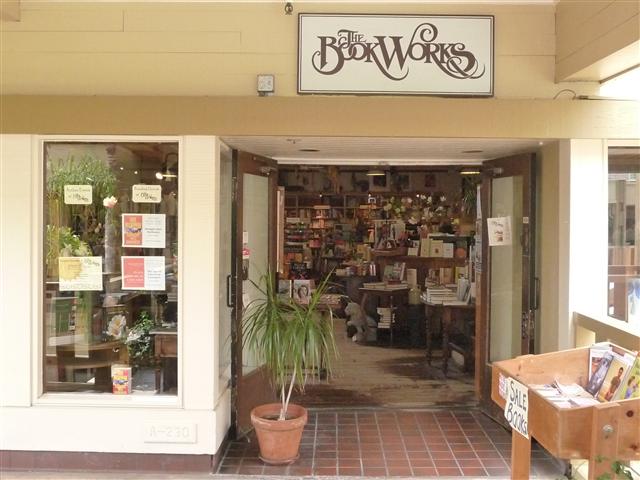 In a note to customers entitled "nothing endures but change," Lisa Stefanacci, owner of BookWorks, Del Mar, Calif., said that the store is making "a few physical modifications" as it continues "to develop a rock solid bookstore model." These include opening part of a wall "to create a more synergistic space with the Pannikin," the neighboring café, as well as rearranging furniture.
In a note to customers entitled "nothing endures but change," Lisa Stefanacci, owner of BookWorks, Del Mar, Calif., said that the store is making "a few physical modifications" as it continues "to develop a rock solid bookstore model." These include opening part of a wall "to create a more synergistic space with the Pannikin," the neighboring café, as well as rearranging furniture.
The store will show off the changes and celebrate its 35th anniversary on Thursday, March 10, when Patricia Churchland appears to discuss her new book, Braintrust: What Neuroscience Tells Us About Morality.
---
As Newtonville Books, Newton, Mass., begins the last year of its current lease, it has issued a challenge to 500 of its customers and readers to join the store's annual membership program. That amount of new members would, owner Mary Cotton wrote, "change the fortunes of your independent bookstore" and allow the store "to renew 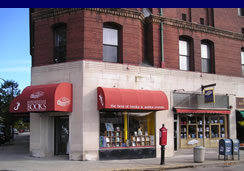 our lease and continue bringing bookclubs, writing workshops, and author events to your community." Individual memberships are $50 and family memberships are $75, and offer 20% discounts on all purchases.
our lease and continue bringing bookclubs, writing workshops, and author events to your community." Individual memberships are $50 and family memberships are $75, and offer 20% discounts on all purchases.
She also wrote: "From the moment my husband and I rescued the bookstore from closing in 2007 (and steered it through the worst economy since the Great Depression), we've endeavored to make Newtonville Books a cultural center for the neighborhood, introducing book clubs, Grub Street workshops, and our own writing workshops, as well as continuing the First Editions Club and the award-winning reading series established by the previous owner, which brings nationally-recognized authors to the community. This is the sort of literary programming Borders, Barnes and Noble, Costco, Target and Amazon don't provide in exchange for their deeply discounted books."
---
Appropriately enough, perhaps, the Borders Bookstore in
Pasadena, Calif.--one of the 200 stores slated for closure--was the most
recent Bookstore of the Week featured by Jacket Copy, which noted that the location "is still an entirely good bet for book shopping. That is, for now."
---
Cool idea of the day: Clinton Bookshop, Clinton, N.J., is hosting a workshop this Thursday called "An Introduction to the College Search Process" featuring Linda Canulette, an educator, school counselor and private college advisor. The workshop will present and discuss topics such as searching for the right college, résumé writing, interview skills, student profile and more. The cost is $35 and includes a copy of Barron's Profiles of American Colleges 2011.
---
Writing on his blog as Bruce J. Quiller, publisher's rep Bruce J. Miller lamented what he calls "the devaluation of books by museums shops, a class of stores considered by publishers to be an essential part of the retail picture. The very non-profit institutions whose raison d'etre is the preservation of knowledge about art, anthropology, zoology, botany--a vast range of subjects--have decided that, while books are a necessary evil, they are an unprofitable  and embarrassing holdover from a time when the economic life of museums was less complicated." Among the institutions in his region that have outsourced bookstore operations are the Chicago Botanical Garden, the Chicago History Museum and the Museum of Science and Industry.
and embarrassing holdover from a time when the economic life of museums was less complicated." Among the institutions in his region that have outsourced bookstore operations are the Chicago Botanical Garden, the Chicago History Museum and the Museum of Science and Industry.
"A bookstore run by museum employees will be better than one administered by absentee managers who buy a limited number of titles and only those they can purchase at the highest discount.... I am not criticizing anyone for trying to adapt to the marketplace. Cost-cutting measures have been introduced everywhere in brick-and-mortar retailing. I do not expect museum shops to behave like libraries. All I ask is that museum bigwigs view their bookstore operation as part of the fulfillment of the mission that gives them their non-profit status. If there is plenty of room for tote bags and calendars, then there is room for scholarly books as well."
---
Book trailer of the day: Man Up!: 367 Classic Skills for the Modern Guy by Paul O'Donnell (Artisan), which shows up April 28.
---
To emphasize its diversity and appeal to general audiences, effective next month, IPG's professional and academic distribution program is being renamed River North Editions.
"While the titles in the River North Editions catalog appeal to an intellectual reader, they are not always published for a strictly academic audience," IPG president Mark Suchomel said. "The label 'professional and academic' no longer goes far enough to describe the breadth of the audience."
The current list includes titles from such publishers as Independent Institute, Melbourne University Press, Earnshaw Books, University of New South Wales, Fons Vitae, Society for Human Resource Management, Carcanet Press, Auckland University Press, Parthian Books and Freemantle Press.
"Labeling these titles as solely academic might lead our customer to think they are published primarily for course adoption," Paul Murphy, v-p of professional and academic marketing, said. "While many of the titles in this catalog are highly specialized, they are not unlike other titles found in quality trade and university bookstores, and we think they have great appeal to the intellectual reader."
River North Editions takes its name from IPG's neighborhood in Chicago.
---
At Hachette Book Group, the following changes have been made in online marketing:
Kelly Leonard has been named v-p, executive director, web strategies, and will be responsible for strategy and ongoing development of all corporate and product websites and share online marketing knowledge with publicists throughout the company.
Brad Parsons has been named associate director, online marketing.
Brianne Beers, online marketing coordinator, is moving to Grand Central Publishing.
Anna Balasi is joining Little, Brown as online marketing associate.
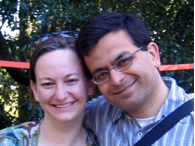 the most fundamental human art
because it's about storytelling and that our reality arguably consists of the
stories we tell about ourselves. And the most fundamental human art isn't going
away. In fact it's going through explosive growth as more and more people
become writers, and more and more books are published every year."
the most fundamental human art
because it's about storytelling and that our reality arguably consists of the
stories we tell about ourselves. And the most fundamental human art isn't going
away. In fact it's going through explosive growth as more and more people
become writers, and more and more books are published every year."


SHELFAWARENESS.1222.S1.BESTADSWEBINAR.gif)


SHELFAWARENESS.1222.T1.BESTADSWEBINAR.gif)
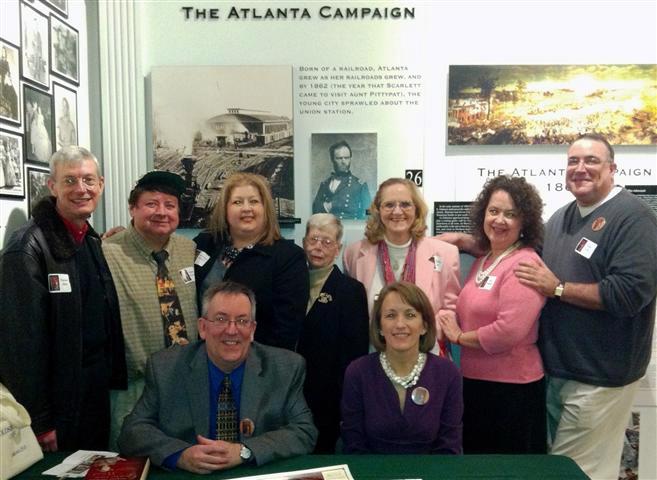
 The
The 
 In a note to customers entitled "nothing endures but change," Lisa Stefanacci, owner of BookWorks, Del Mar, Calif., said that the store is making "a few physical modifications" as it continues "to develop a rock solid bookstore model." These include opening part of a wall "to create a more synergistic space with the Pannikin," the neighboring café, as well as rearranging furniture.
In a note to customers entitled "nothing endures but change," Lisa Stefanacci, owner of BookWorks, Del Mar, Calif., said that the store is making "a few physical modifications" as it continues "to develop a rock solid bookstore model." These include opening part of a wall "to create a more synergistic space with the Pannikin," the neighboring café, as well as rearranging furniture.  our lease and continue bringing bookclubs, writing workshops, and author events to your community." Individual memberships are $50 and family memberships are $75, and offer 20% discounts on all purchases.
our lease and continue bringing bookclubs, writing workshops, and author events to your community." Individual memberships are $50 and family memberships are $75, and offer 20% discounts on all purchases. and embarrassing holdover from a time when the economic life of museums was less complicated." Among the institutions in his region that have outsourced bookstore operations are the Chicago Botanical Garden, the Chicago History Museum and the Museum of Science and Industry.
and embarrassing holdover from a time when the economic life of museums was less complicated." Among the institutions in his region that have outsourced bookstore operations are the Chicago Botanical Garden, the Chicago History Museum and the Museum of Science and Industry.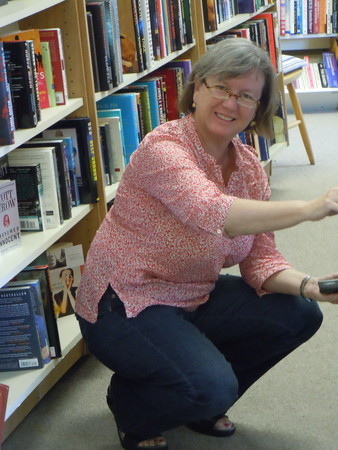 Of the eight Borders within 25 miles of Vallejo, Calif., three will close, the
Of the eight Borders within 25 miles of Vallejo, Calif., three will close, the 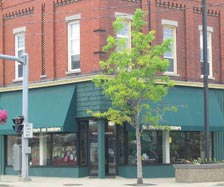 "We're looking on it as kind of the wild west of the publishing era at the moment," said Bill Reilly, owner of the
"We're looking on it as kind of the wild west of the publishing era at the moment," said Bill Reilly, owner of the 
 Susan Richmond, owner of
Susan Richmond, owner of 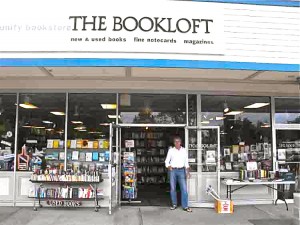
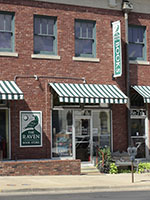 "We have survived through having Borders here and now really regard it as part of our bookstore culture," Heidi Raak, owner of the
"We have survived through having Borders here and now really regard it as part of our bookstore culture," Heidi Raak, owner of the 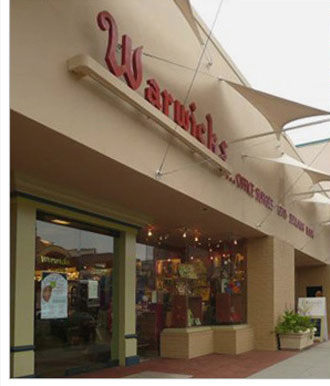 San Diego area booksellers are not celebrating the troubles at Borders.
San Diego area booksellers are not celebrating the troubles at Borders. 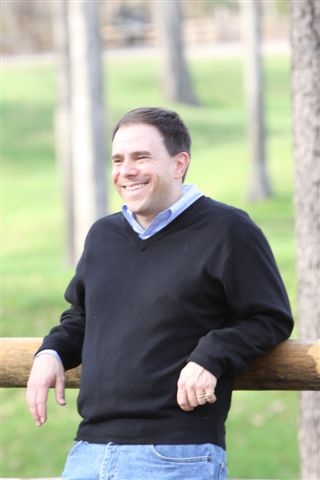 On his
On his 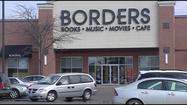 Gary Selby, general manager of the Springfield Borders, responded to the post with a note of thanks that also offered a peek behind the curtain at one of the Borders stores facing closure: "Thank you for the kind words. Yes, it is tough time around here and will be until we close the doors for good. We have a great store here with a great team. We got caught up in something that started years ago with poor decisions made at the top. Too bad we are the ones who pay the ultimate price. The big heads in the big house still have their jobs and livelihood while the rest of us pay for their blunders. Jobs are tough right now and with no help or assistance from Borders we are on our own. This company is a huge disappointment for myself and my team and the many other stores that are closing. We were literally kicked out. I have never heard of a company with so little passion and so much cruelty as this one. I do however cherish the fond memories of the customers, authors, and employees that I have had the pleasure of working with. That is what I take going forward. There will be better days ahead."
Gary Selby, general manager of the Springfield Borders, responded to the post with a note of thanks that also offered a peek behind the curtain at one of the Borders stores facing closure: "Thank you for the kind words. Yes, it is tough time around here and will be until we close the doors for good. We have a great store here with a great team. We got caught up in something that started years ago with poor decisions made at the top. Too bad we are the ones who pay the ultimate price. The big heads in the big house still have their jobs and livelihood while the rest of us pay for their blunders. Jobs are tough right now and with no help or assistance from Borders we are on our own. This company is a huge disappointment for myself and my team and the many other stores that are closing. We were literally kicked out. I have never heard of a company with so little passion and so much cruelty as this one. I do however cherish the fond memories of the customers, authors, and employees that I have had the pleasure of working with. That is what I take going forward. There will be better days ahead."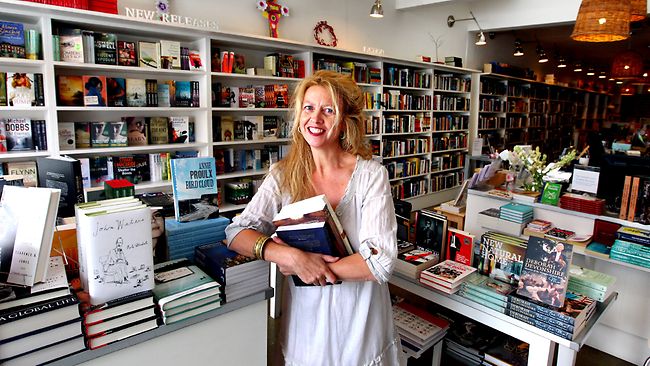
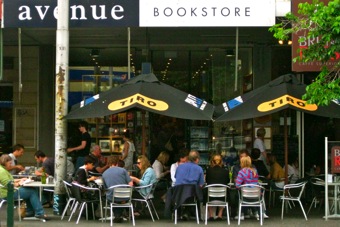 ''What has done them in is an appalling business model,'' Chris Redfern--owner of the
''What has done them in is an appalling business model,'' Chris Redfern--owner of the 
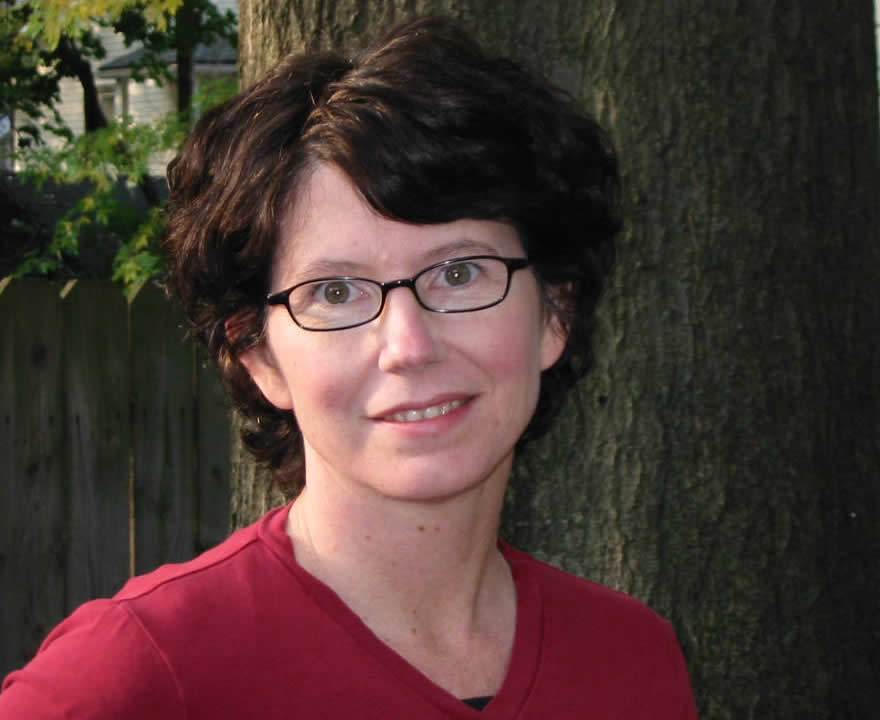 In
her latest book, The Paris Wife (Ballantine, $25, 9780345521309,
February 22, 2011), a
novel based on Ernest Hemingway's first marriage to Hadley Richardson, Paula McLain
vividly recounts a time, a place and a group of people. McLain
received an MFA in poetry from the University of Michigan and has been awarded
fellowships from Yaddo, the MacDowell Colony and the National Endowment for the
Arts. She is the author of two poetry collections as well as a memoir, Like
Family: Growing Up in Other People's Houses,
and a novel, A Ticket to Ride. She lives with her family in Cleveland.
In
her latest book, The Paris Wife (Ballantine, $25, 9780345521309,
February 22, 2011), a
novel based on Ernest Hemingway's first marriage to Hadley Richardson, Paula McLain
vividly recounts a time, a place and a group of people. McLain
received an MFA in poetry from the University of Michigan and has been awarded
fellowships from Yaddo, the MacDowell Colony and the National Endowment for the
Arts. She is the author of two poetry collections as well as a memoir, Like
Family: Growing Up in Other People's Houses,
and a novel, A Ticket to Ride. She lives with her family in Cleveland. 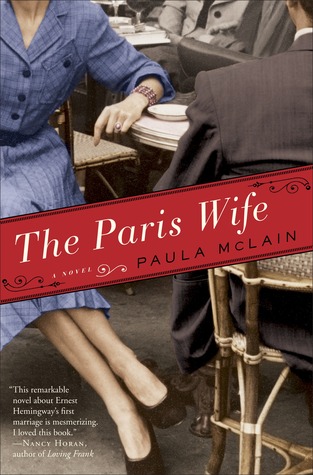 What
drew you to this subject?
What
drew you to this subject?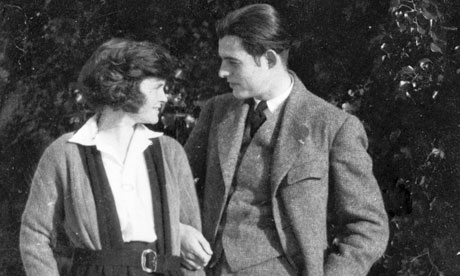 How
did Hadley manage to land him? He was drop-dead gorgeous, great fun at a party,
a devil-may-care journalist ready to accept any assignment, quite comfortable
in his world.
How
did Hadley manage to land him? He was drop-dead gorgeous, great fun at a party,
a devil-may-care journalist ready to accept any assignment, quite comfortable
in his world.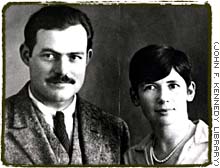 Pauline
Pfeiffer was very different from Hadley. She pretended to be Hadley's best
friend to seduce Ernest. Their peculiar arrangement, with Pauline standing by
as mistress and Hadley still Hemingway's wife, is true to historical record. Hadley
was so much in love with Ernest that she would do anything to hang on to him. How
could she stay in the marriage in these circumstances as long as she did? Her
passivity was no doubt a combination of depression and denial. They had made it
through oceans of sexual license going on all around them; Pauline remained
true to her vows and her intentions, until it was simply no longer possible. The
story of Hadley Richardson and Ernest Hemingway is very moving, poignant, happy
and sad. The truth is that sometimes we fail each other.
Pauline
Pfeiffer was very different from Hadley. She pretended to be Hadley's best
friend to seduce Ernest. Their peculiar arrangement, with Pauline standing by
as mistress and Hadley still Hemingway's wife, is true to historical record. Hadley
was so much in love with Ernest that she would do anything to hang on to him. How
could she stay in the marriage in these circumstances as long as she did? Her
passivity was no doubt a combination of depression and denial. They had made it
through oceans of sexual license going on all around them; Pauline remained
true to her vows and her intentions, until it was simply no longer possible. The
story of Hadley Richardson and Ernest Hemingway is very moving, poignant, happy
and sad. The truth is that sometimes we fail each other.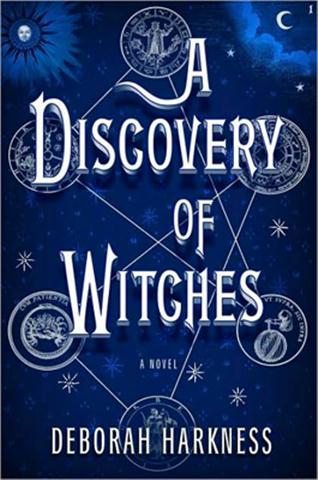 The opening pages of Deborah Harkness's debut novel, A Discovery of Witches, are a combination of unpromising hokiness and tempting intrigue: Diana Bishop is a historian of science who's also descended from a long line of witches; she's rejected her heritage because she's frightened by the power, even though most of the examples of magic she cites are no more intimidating than Samantha's antics on Bewitched. She's in Oxford to study an ancient alchemical manuscript, which turns out to be under a powerful spell, and the next thing you know every witch, vampire and daemon (brilliant but unstable people whose genius/madness has some supernatural component) around wants to know she saw when she read that book... but the one that really catches her attention is a vampire scientist named Matthew Clairmont.
The opening pages of Deborah Harkness's debut novel, A Discovery of Witches, are a combination of unpromising hokiness and tempting intrigue: Diana Bishop is a historian of science who's also descended from a long line of witches; she's rejected her heritage because she's frightened by the power, even though most of the examples of magic she cites are no more intimidating than Samantha's antics on Bewitched. She's in Oxford to study an ancient alchemical manuscript, which turns out to be under a powerful spell, and the next thing you know every witch, vampire and daemon (brilliant but unstable people whose genius/madness has some supernatural component) around wants to know she saw when she read that book... but the one that really catches her attention is a vampire scientist named Matthew Clairmont.